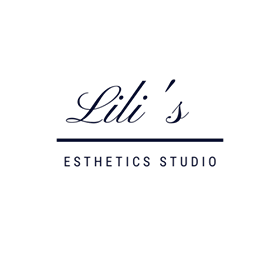7 Myths About Acne You Need To Know
I see acne as one of those skin conditions that almost everyone experiences at some point. Even though many people suffer from acne, there are still many misconceptions about acne, confusing people and ultimately leading to ineffective treatments. In this article, I want to clear up some of the most common myths about acne.
I see acne as one of those skin conditions that almost everyone experiences at some point. Even though many people suffer from acne, there are still many misconceptions about acne, confusing people and ultimately leading to ineffective treatments. In this article, I want to clear up some of the most common myths about acne.
Myth 1: Acne Only Affects Teenagers
Acne is often attributed to teenage years, but that’s not necessarily true. Acne is a skin disease that can be experienced by every age group: infancy, childhood, adolescence, adulthood, or old age. Research has estimated that at some time in their lives, half of all women and one out of four men have the likelihood of developing adult acne. Stress, hormonal activity, and genetics were significant causes of adult acne.
Myth 2: Poor Hygiene Causes Acne
Most adults believe that acne is caused by poor personal hygiene. The fact is that acne is mainly results from the overproduction of oil (sebum), dead skin cells, bacteria, and inflammation. As much as it is essential to maintain the cleanness of the skin, excessive cleansing or harsh soaps can cause the skin to become sensitive and develop more acne. I recommend gentle cleansing twice daily with appropriate products formulated to help balance excessive oil production and reduce inflammation.
Myth 3: Popping Pimples Helps Them Heal Faster
Getting rid of pimples by squeezing them is especially bad for the skin, even though this is a thing that many people do. The reason is simple: when you attempt to squeeze a pimple, you introduce more bacteria and pus back into the skin, increasing the chances of developing a scar. Instead, you should apply serums or creams with retinol or salicylic acid for anti-inflammatory properties and faster skin healing.
Myth 4: Sun Exposure Clears Up Acne
Even though some sunshine is fine, sunbathing or excessive exposure can harm your skin. The sun’s ultraviolet rays can stimulate oil production, leading to the formation of more acne. Sunburn is more dangerous as it can aggravate acne and lead to other problems in the future, such as skin aging and skin cancer. To minimize acne scars and skin damage, wear broad-spectrum sunscreen daily and include it in your skincare routine.
Myth 5: Makeup Causes Acne
This is not correct or true. Most makeup today is non-comedogenic, meaning it will not clog the pores. However, some cheap formulas may use inferior ingredients and should be avoided. Sleeping with makeup is a sure way to trigger acne and skin inflammation. Use facial cleansers classified as non-comedogenic to prevent blocking the skin pores before you go to bed.
Myth 6: Diet Has No Effect on Acne
New studies show that it is possible that certain foods can cause or trigger acne. Cakes, candies, white bread, and other high-sugar foods, as well as dairy products, are believed to trigger breakouts of acne. A healthy lifestyle, proper nutrition, eliminating junk food, and including fruits, vegetables, and whole grains in the diet will go a long way in reducing inflammation and helping prevent acne.
Myth 7: Acne Is Just a Cosmetic Problem
Recent studies have revealed that acne can impact self-esteem and mental health. Feelings of low self-esteem, anxiety, and depression were noted in most of the subjects with acne. Skincare is essential to a certain point, but more importantly, acne should not be overlooked, and appropriate actions should be taken to achieve healthy skin and psychological health.


